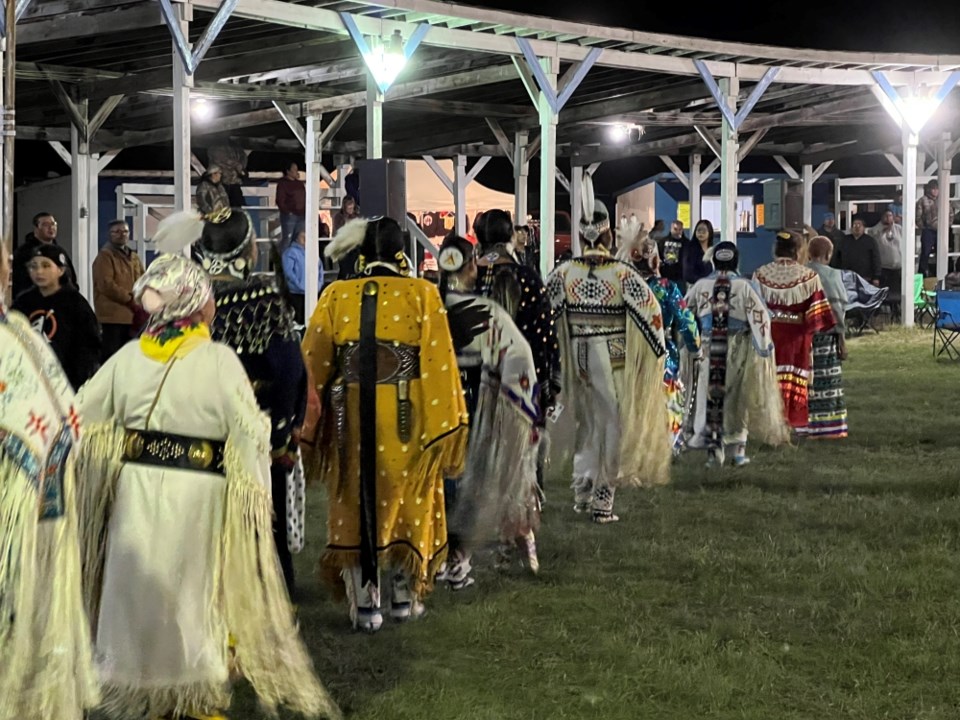The National Day of Truth and Reconciliation will be observed in Canada on Sept. 30.
“This campaign is a movement for non-First Nations people to learn, admit and believe the collective, traumatic history that our ancestors have gone through,” said Chief Connie BigEagle from Ocean Man First Nation.
White Bear First Nations has a full day planned, starting with a pancake breakfast at the White Bear Veterans Arena.
Later in the day at 2 p.m., an Every Child Matters Walk will be held from the administration office to the Veterans Arena, and then there will be a few guest speakers.
Around 4:30 p.m., there will be a powwow dance and a contest for those in orange regalia, and also an Every Child Matters logo contest.
The afternoon will continue with face painting, horseshoes and an orange t-shirt contest.
A community feast will begin at 5 p.m. at the Veterans Arena, and there will also be vendors and a yard sale.
They encourage everyone to come out and attend, as it is for all.
In Stoughton, at the Green Space on Main Street, the Stoughton Co-op's grocery store will host a barbecue from 11:30 a.m. until 1 p.m. In addition to this, the co-op gas bar will donate five cents per litre of gas pumped on Sept. 30 to the Ocean Man Nutrition Program for the children at Ocean Man School and the Stoughton Central School.
For the week of Sept. 25-30, the Â鶹ÊÓƵ East Cornerstone Public School Division will honour truth and reconciliation for the entire week, teaching the children about the Indigenous culture and heritage.
Little Bird is a series that was recently released and explains the behind-the-scenes context of the '60s Scoop and went into a great deal of detail.
In June 2021, the Government of Canada passed Bill C-5 to make Sept. 30 a federal statutory day. It is known as the National Day of Truth and Reconciliation.
This day is set aside for people to wear orange t-shirts as an opportunity to discuss the effects of residential schools and their legacy.
It honours the Indigenous people and celebrates their resilience and affirms a commitment that every child matters.
There are many ways that people can educate themselves about the residential schools and the '60s Scoop, what happened at these schools and how to make sure that nothing like this will ever happen again.
For a period of more than 150 years, First Nations, Inuit and Métis Nations children were taken from their homes and communities to attend these schools, which were located far from their homes.
Over 150,000 children attended these residential schools, with many of them never returning to their families.
Children as young as four years of age were taken from their homes. The government would not pay to have the children returned if they passed away and were buried at the schools. Many parents were never told what happened to their children.
At one time in 1931, 80 residential schools were operating in Canada and the last one closed in 1996. It was the last federally funded residential school in Canada.
Some residential schools remain standing in Saskatchewan, and a few more of these buildings remain throughout Canada.
They were not allowed to speak their language, nor speak of their culture, and if they did, they were abused and beaten.
There was also the '60s Scoop, where children were taken from First Nations families and put up for adoption.
They would be placed in middle-class white family homes and fosters and then adopted.
It is estimated that 20,000 First Nations children were scooped up and placed like this. It continued until the 1980s when it was harshly condemned.
Multiple class action lawsuits were filed and launched across five provinces.
In 2017, the Ontario Superior Court ruled that the government was liable for the harm caused by the '60s Scoop.
To Indigenous people, these are dark days for the ones that were lost and for the ones that survived these schools and being taken away from their families.
Today the Indigenous people are healing from this dreadful act, and they continue with their culture and teach the children their language.
The Indigenous people have strong communities, and they are resilient, holding strong in their beliefs and heritage. They would like for non-Indigenous people to understand and educate themselves, and join in when possible, such as going to their powwows.
This day is also set aside for all the Indigenous men, women and children who are still missing to this day and for those who have survived this horrible part of Canadian history.






